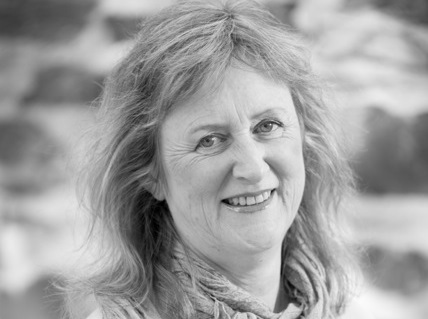September isn’t the time to leave Australia and go travelling to the other side of the world. It’s the first month of spring. The air moves more lightly; the hard, hopeful buds are beginning to swell; the trees are coated in the bright green of young leaves; the blossom appears, seemingly, overnight; and the magpies turn ballsy. Outside my kitchen the Wisteria transforms from winding sticks to purple lanterns and the veggie garden grows weeds at an alarming rate.
This year, I didn’t see any of it, because I’ve been Writer in Residence at Gladstone’s Library. So, instead, I had another kind of spring: words, ideas, people.
My first weekend was Gladfest, the annual friendly literary festival. For me as a writer, the chance to hear other writers and to learn from them is invaluable. And one of the things I loved most was the variety of writing: non-fiction about the history of forecasting and weather patterns; fiction about countryside and wilderness, about art and Spain, about nineteenth-century northern America; conversations about Islam and about the journey to, and away from, faith. And in between the sessions, I wandered out into the gardens to sit in the sun, watch the face-painted children, browse among the craft stalls (resisting the temptation to buy because of my already-bulging suitcase).
Of course, there were highlights! As a writer of historical fiction, a special treat for me was the chance not only to hear Sarah Dunant’s spectacularly energetic and visual presentation about Renaissance art and her own writing, but to meet her and chat: when to tell if you’ve enough research, how to maintain voice, how to negotiate the demands and encouragements of publishers.
One hour that will stay with me for a long time is Michel Faber’s talk, recalling his writing life. Appropriate, given that he says his latest novel is his last. I realised, afterwards, that his words developed in the same way as his novels, especially The Book of Strange New Things, forming slowly and almost unnoticed, gathering weight and significance. When he finished with reading two poems from his collection about the death of his wife, I was in tears.
Since my novel has been published I’ve been a guest at quite a few writers’ festivals in Australia, and I’m always bowled over by the enthusiasm and sharp-minded interest of those who come to listen. And Gladfest is no exception. The warmth of the audiences, their thoughtful questions, their willingness to wait in a queue to have a book signed, and then to chat, give a festival its particular atmosphere. And, of course, the setting.
And it was just like that for me on Sunday afternoon. It was a special moment to stand among the carved wood of the library, among books, old and new, some with Gladstone’s own marginalia and some with shiny new covers, to speak about writing my novel and the value of historical fiction.
When festivals work well, I think, they become an ongoing, shifting and exciting conversation — sometimes about subjects we’ve deliberately sought out, and sometimes about things we’d never dreamt of learning about, much less discussing and pondering. So, while I love curling up in my big armchair with a book, or sitting at my desk writing, I know that a few days among booklovers and writers will give me something else, something extra ordinary.
Robyn Cadwallader
Robyn's latest novel, The Anchoress, is published by Faber and is out now.

